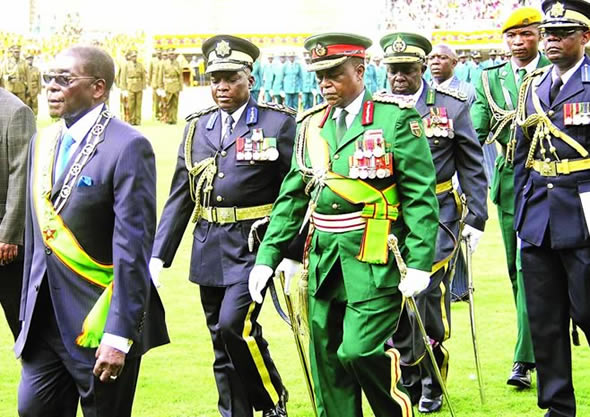By Alexander Noyes
Zimbabwe is fast approaching a dangerous tipping point. Last month, its ailing octogenarian president, Robert Mugabe, angrily defied his critics, calling for early elections in 2012.

If a political settlement with Zimbabwe’s security chiefs is not negotiated before the vote, Mr. Mugabe will no doubt rely on them to once again begin a campaign of intimidation and violence, leading to sham elections that could precipitate a regional crisis.
To prevent this, the international community — in concert with African regional organizations — must push for a deal that allows Mr. Mugabe’s coterie of security men to leave the political scene in a peaceful fashion.
Although it is difficult to swallow from a human rights perspective, any deal will have to grant the security chiefs immunity from prosecution and permit them to keep a sizable portion of their wealth.
The current power-sharing government between Mr. Mugabe and the opposition prime minister, Morgan Tsvangirai, has brought relative calm and economic stability to Zimbabwe since its formation in early 2009.
However, the far from united “unity government” has failed to make any meaningful progress on the issue of how to deal with the so-called securocrats. Addressing this thorny question is the key to a peaceful democratic transition in Zimbabwe.
Over the past decade, the Joint Operations Command — Zimbabwe’s supreme security council — has orchestrated violent campaigns to guarantee Mr. Mugabe victory in successive elections, culminating in the 2008 crisis.
After the opposition’s initial success in the 2008 elections, the J.O.C. began a brutal campaign of violence that left more than 200 people dead and forced Mr. Tsvangirai to withdraw from the poll. Little has changed since then.
Although the power-sharing agreement contained several opaque references to security reform, the only progress has been cosmetic because Mr. Mugabe, his ZANU-PF party, and the J.O.C. continue to unilaterally decide security matters and use security agencies for political purposes.
In anticipation of coming elections, the military has reportedly already deployed to rural areas to coerce people to vote for Mr. Mugabe.
But a careful balance of carrots and sticks could persuade Mr. Mugabe and the securocrats to accept a deal. Headed by the South African president, Jacob Zuma, the Southern African Development Community has been negotiating with Zimbabwe on a “road map” to free and fair elections.
The African Union, the United Nations, the United States and the European Union must pressure Mr. Zuma and the S.A.D.C. not to countenance elections without a deal that ensures the retirement of the securocrats.
The prospect of lifting existing targeted sanctions and promises of robust financial assistance would give Mr. Mugabe and his henchmen strong incentives to make a deal. If they remain obstinate, Zimbabwe’s neighbors should consider taking punitive measures, including economic sanctions.
As Mr. Mugabe’s health continues to falter and political pressure from neighboring countries increases, many of the security officials surrounding Mr. Mugabe are looking for a safe exit. They oppose a settlement mainly because they fear prosecution and losing access to political patronage networks through which they accrue their wealth.
A successful negotiated solution must therefore include two key “sunset clauses” for the securocrats: immunity from prosecution for political crimes and assurances that they could keep enough of their accumulated wealth to live comfortably for the rest of their lives.
With elections this year increasingly likely, the window of opportunity for the international community to prevent another round of bloody elections in Zimbabwe is rapidly closing.
Granting amnesty and affluence to egregious human rights abusers may seem like an unpalatable trade-off, but it is the only viable avenue to securing a full and peaceful democratic transition in Zimbabwe. New York Times
Alexander Noyes is a research assistant at the Africa Center for Strategic Studies.





